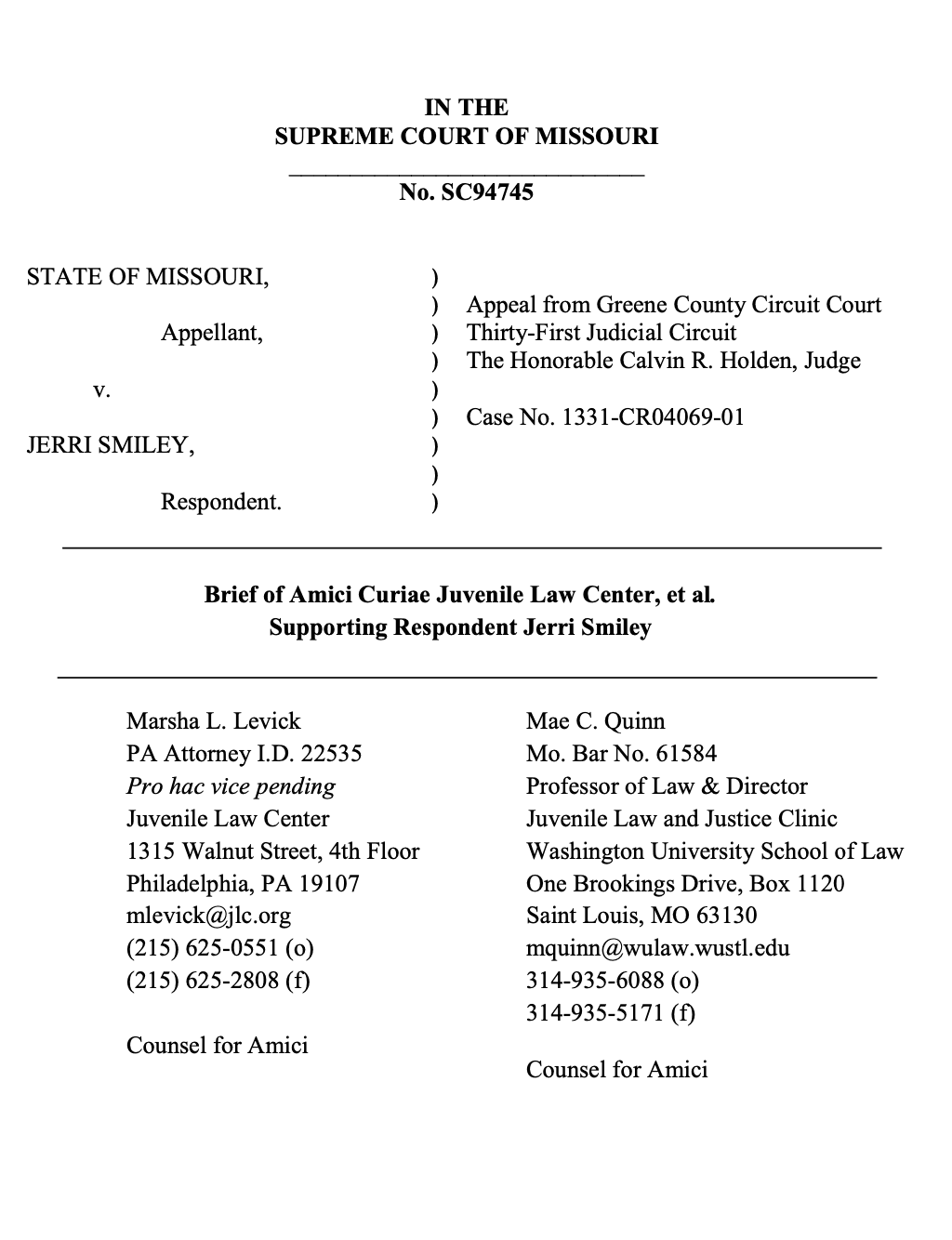
Summary of Argument
The United States Supreme Court held in Roper v. Simmons, 543 U.S. 551 (2005), Graham v. Florida, 560 U.S. 48 (2010), and Miller v. Alabama, 132 S. Ct. 2455 (2012), that children are different from adults in constitutionally significant ways and are categorically less culpable than adults. In spite of these differences, Missouri’s Armed Criminal Action statute mandates that any person committing a felony with the use or aid of a dangerous instrument or deadly weapon, including juveniles tried as adults, “shall be punished by imprisonment . . . for a term of not less than three years.” Mo. Rev. Stat. § 571.015.1 (2014). This statute, adopted to sanction adult offenders, gives the sentencer no opportunity to determine whether three years in prison is proportionate for a juvenile offender, in light of their decreased culpability and increased potential for rehabilitation. Indeed, the sentencer is precluded from considering any factors related to the youth’s age and related characteristics, including their immaturity and impulsivity, family and home environment, the circumstances of the offense (including their participation and the role of peer pressure), their incompetencies in dealing with the adult criminal justice system, and, importantly, their potential for rehabilitation. Because incarcerating juvenile offenders actually increases recidivism and elevates the risk of harm to the youth, a sentencer’s inability to craft an appropriate, individualized and constitutionally proportionate sentence is particularly problematic.
Striking the mandatory incarceration provision of the Armed Criminal Action statute would not preclude a sentencer from imposing a three-year prison sentence on a juvenile; it would merely require that the sentencer consider the youth’s age and reduced culpability in determining a proportionate sentence.